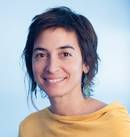The future and the human past
In December 2015, the Human Genetic Edition Summit was held in Washington, where the new technique that has been heard so often recently was discussed: CRISPR. The powders are turning, since, although other techniques have previously been developed to modify our genetic characteristics, CRISPR introduces an important novelty: editing genes is easier than ever and is very economical. It makes gene editing available to any laboratory.
There is already a country that has regulated the use of this technique: Great Britain has approved the genetic edition of human embryos, only for research, yes.
The technique can bring new opportunities for the future and concerns. Being a hot topic, we wanted to bring it to the desk.
On the other hand, we wanted to look back, looking at the past of our species. Homo sapiens appeared some 200,000 years ago, at a time when several human species lived. He left his hometown, Africa, 70,000 years ago, and began to spread to all continents. Still just 30,000 years ago he lived on Earth along with at least three hominids: the Neanderthals, in Europe and in Western Asia; the Denisoveses, in Asia; and the humans of the island of Flores, in Indonesia. But all were disappearing and now we are the only human species surviving on Earth. Why only? Why did everyone else disappear?
Has it been any characteristic of our species that has led us to impose ourselves? There has been talk of imagination and creativity, of greater cognitive capacity, of our social and cooperative character… But there is another option: to be a coincidence.
We wanted to accommodate one of the most interesting episodes of human evolution and for this we had the presence of four experts. Four experts and four views. María Martinón Torres, researcher at the University of London; Carmen Manzano Basabe, professor of anthropology at the UPV; Joseba Ríos Garaizar, researcher at the Centro de Investigación en Evolución Humana CENIEH; and Diego Garate Maidagan, researcher at the University of Tolosa. We hope you enjoy their reflections as much as we do.






